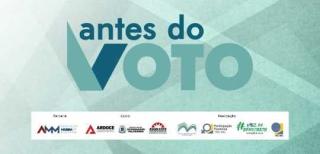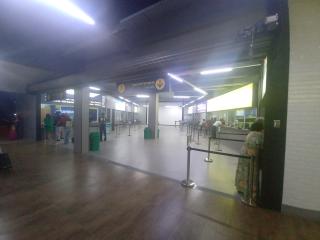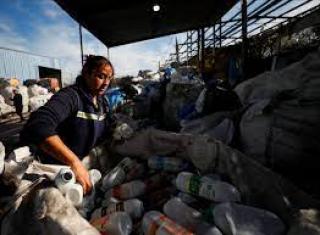Veja Também -
 Projeto 'Antes do Voto 2024' chega a Governador Valadares, Montes Claros e Uberlândia
Projeto 'Antes do Voto 2024' chega a Governador Valadares, Montes Claros e Uberlândia Projeto apoia população negra, minorias e influencers em Montes Claros
Projeto apoia população negra, minorias e influencers em Montes Claros Nova rodoviária de Governador Valadares impede acesso de populares; só com passagens
Nova rodoviária de Governador Valadares impede acesso de populares; só com passagens Projeto 'MP em Movimento, chega a Montes Claros, em 18 de abril
Projeto 'MP em Movimento, chega a Montes Claros, em 18 de abril Da diferença entre Frente Mineira de Prefeitos (FMP) e Associação Mineira de Municípios (AMM)
Da diferença entre Frente Mineira de Prefeitos (FMP) e Associação Mineira de Municípios (AMM)- Veja + Revelia News
Revelia News
Postado dia 18/07/2022 às 16:58:16
In Argentina's trash cans, less waste reflects ravages of inflation

Joaquín Rodríguez makes his living collecting and recycling trash from the streets and dumpsters in the suburbs of Argentine capital Buenos Aires. But he has a problem: with inflation over 60%, people are throwing away less stuff.
The 24-year-old is one of an army of waste pickers known locally as "cartoneros" who trawl for cardboard, glass and plastic trash, which they carry or drag on carts to recycling centers around the city, which pay them small sums in return.
Rodríguez and half a dozen other cartoneros Reuters spoke to all painted the same picture of less trash being thrown away in recent months, squeezing their income and reflecting how fast-rising prices are causing shoppers to tighten their belts.
"Every day we are collecting less," said Rodríguez, who noticed the trend in his suburb of Lomas de Zamora since May, which he blamed on the country's inflation rate, one of the highest in a world at 64% annually.
"People have no choice but to do the same work as us: there are more and more cartoneros and less waste."
While there is no updated official data on trash volumes, analysts tracking retail sales data have charted the drop-off in consumption, which fell 4.5% by volume in June versus a year earlier, according to local consulting firm Focus Market.
Prices rose 5.3% in June alone, official data shows. Prices at times even jump sharply overnight as retailers look to catch up with - or get ahead of - inflation estimated by a central bank poll to hit 76% this year.
"People's consumption has dropped because things have become very expensive," said Marcela Cid, 58, owner of two clothing stores in San Fernando, north of Buenos Aires. "And that produces a drop in sales for us."
She added that inflation also skewed raw material costs for her company, which made replacing stock harder, another dampener to doing business.
"When we go to replace (merchandise) we find different prices," she said. "Before I was going to buy with 100,000 pesos from my suppliers and today I need 170,000 or 180,000."
'NO SALES'
Argentina, which has cycled through economic crises and high inflation for decades, is struggling to stabilize the situation, with spiraling prices hurting growth, confidence in the peso and weighing on already weak foreign currency reserves.
The South American country's economy minister quit earlier this month, uncovering deep rifts in the government of center-left President Alberto Fernández, which has tightened currency controls and hiked interest rates in a bid to tame inflation.
Paola Godoy, 40, leader of recycling cooperative Jovenes en Progreso, told Reuters that companies were using and selling less material now - bad news for the cartoneros.
"Businesses that used to take out cardboard twice a day, in the morning and in the afternoon, take out only once a day, because there are no sales," she said, amid huge bales of plastic, cardboard and nylon her group collects.
The cartoneros sell cardboard, for example, at 37 pesos per kilogram, around 29 U.S. cents at the official exchange rate.
'MY SALARY IS NO LONGER ENOUGH'
In middle class and working class homes, Argentines are being forced to change consumption patterns as prices climb. Some shift from more expensive brands to cheaper ones, cut out luxuries or travel further to get discounts.
Bus driver Juan Silva, 53, said he has started to travel to buy groceries in bulk from the city's central market, known for lower costs.
"With the issue of the economy, the way the country is, we have to make that effort to buy in bulk and save for the whole month. There are many of us in the family; really, my salary is no longer enough," he said.
On the streets there have been signs of rising anger, with protests against the government and a $44 billion debt deal with the International Monetary Fund (IMF), which includes targets on cutting a deep fiscal deficit and reducing inflation.
Shila Vilker, director of consultancy Trespuntozero, said nearly 90% of Argentines had recently made spending cuts, especially on outings and entertainment, food and clothing. Many had cut back on eating beef, a local staple.
Romina Peluffo, a 43-year-old cartonera who is the leader of the Plaza Libertad recycling cooperative, said that impact was clear to see on the streets.
"From May until now, recyclable material began to drop a lot. Before, we'd collect two bags every day, with milk cartons, egg boxes, cooking oil. Today perhaps we get half a bag," she said. "There's just not as much now on the streets."




